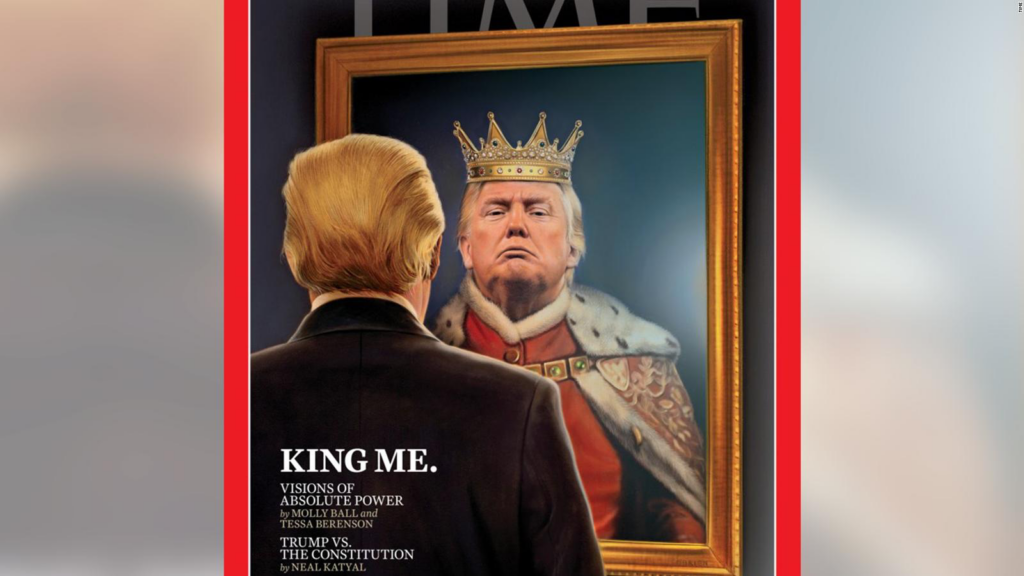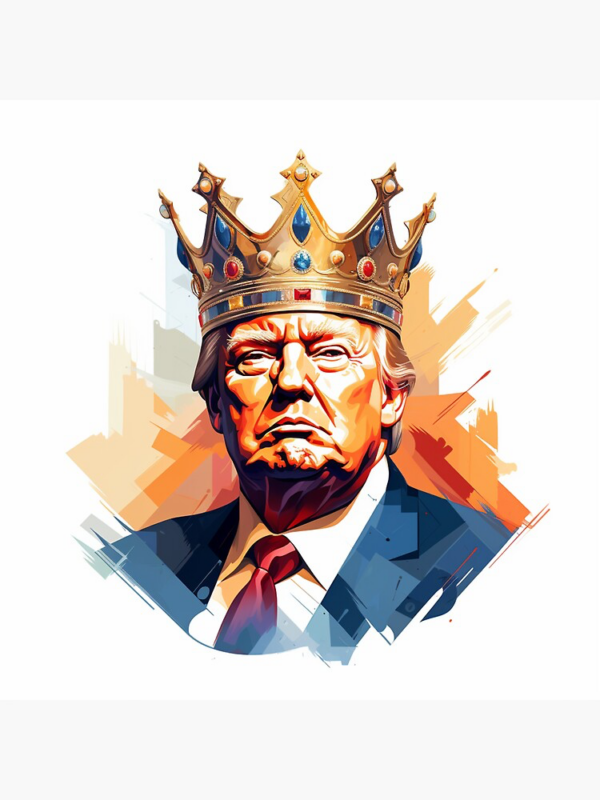Exploring the Potential Impact of Trump’s Return to Power and America’s Democratic Future
By Ya Libnan Editorial Board
Introduction In a stunning election outcome, Donald Trump has returned to the White House after defeating Kamala Harris, securing his position as the president-elect once again. Having already outlasted or defeated powerful American dynasties—from the Bushes to the Clintons and Cheneys—Trump has become the ultimate outsider-turned-political force, upending conventional politics in America. But with his unprecedented return, questions arise about the future of democracy itself. Will Trump’s latest victory reshape the country’s political landscape, perhaps even leading America away from democratic elections?
This speculation has reignited interest in the predictions of Ingersoll Lockwood, a 19th-century author whose books reference a “last president” and an aristocratic boy named “Baron.” Some wonder if Trump’s re-election signals a new chapter where democratic norms will be replaced by a stronger, more centralized rule—perhaps even a dynasty.

Trump and the Fall of American Dynasties With Trump’s latest victory, he has emerged as a singular force, toppling or overshadowing the powerful political families that once dominated American politics. Unlike previous presidents who came from long-standing political legacies, Trump represents a new kind of political legacy: one that defies the establishment rather than sustaining it. His return to office demonstrates a clear rejection of traditional power structures in favor of a populist, outsider approach, appealing directly to the “forgotten” Americans who see him as their champion.
This win over Kamala Harris and the sidelining of political dynasties signal a dramatic shift in American politics. Trump has managed to position himself not just as a leader but as a symbol of American defiance against the elite. For many, his victory represents a break from the influence of institutionalized power—and a shift toward a more centralized, individualistic leadership style.
A Transforming Democracy: What Trump’s Victory Means for the Future of U.S. Elections With Trump’s return to the presidency, there is widespread concern that democratic processes in the United States could undergo further transformation, if not outright regression. Over his previous term, Trump was known for questioning election results, disparaging the media, and diminishing the role of Congress and the judiciary. Now, as he assumes power again, his influence could accelerate the erosion of democratic checks and balances, reshaping America’s system to favor a more unilateral executive branch.
Many political analysts worry that Trump’s second tenure may result in:
- Increased Centralization of Power: Trump could continue to consolidate power, bypassing Congress and seeking to weaken independent institutions.
- Erosion of Democratic Norms: By consistently challenging the legitimacy of elections and institutions, Trump may foster an environment where elections are more “managed” than free.
- Dynastic Influence and Legacy: With speculation that his son, Barron, could eventually step into the political spotlight, Trump’s re-election raises questions about a potential dynastic influence on America’s future governance.
Lockwood’s Predictions: The “Last President” and the Rise of Barron Trump The resurgence of Trump has many reflecting on the predictions of Ingersoll Lockwood’s books, Baron Trump’s Marvelous Underground Journey and 1900: Or, The Last President. Although written as fiction, Lockwood’s works have taken on an almost prophetic tone among Trump’s supporters and critics alike. In these works, the idea of a last president and a noble child named Baron hints at the end of America’s democratic era and the possible rise of a dynasty.
The possibility that Barron Trump could follow in his father’s footsteps and inherit this political legacy, possibly by the year 2100, feeds into this speculative narrative. Although the idea of a monarchy in America is far-fetched, Trump’s return could lay the groundwork for a legacy of Trumpian influence, potentially carried on by his children.
Could This Really Be America’s Last Democratic Election? The notion of Trump as America’s “last president” doesn’t necessarily mean he will abolish elections, but it does hint at the risks of democratic backsliding. His victory over Harris has reinforced fears that traditional democratic institutions might be weakened or sidelined in favor of a more authoritarian model.
Several factors could make this the last truly democratic election:
- Undermining of Checks and Balances: With Trump’s return, there’s a possibility he will appoint loyalists to key positions, further weakening the independence of Congress and the judiciary.
- Reduced Media Freedom: By constantly branding the media as “the enemy of the people,” Trump could make it easier for future leaders to control the press, limiting the American people’s access to unbiased information.
- Public Trust and Electoral Integrity: Trump’s ongoing claims of election fraud have damaged trust in the electoral system, which could discourage voter participation and increase acceptance of manipulated outcomes in the future.
The Path Forward: Vigilance or Submission? As Trump prepares to take office, the question remains: Is this truly the end of America’s democratic tradition? For some, Trump’s victory symbolizes a hopeful reclaiming of American strength, while for others, it is a cautionary tale. This election may not immediately end democratic governance in America, but it could very well set the country on a path toward a more centralized, authoritarian style of leadership.
Ultimately, the preservation of democratic ideals will depend on the resilience of American institutions and the determination of its people. If Americans remain vigilant, engage in civic duties, and defend their constitutional rights, they can ensure that democracy endures. Conversely, if they grow complacent, history may one day look back on Trump as the beginning of America’s transition away from democracy.
Conclusion In a world where speculative fiction and political reality seem to intertwine, Donald Trump’s victory over Kamala Harris is not just a political win—it’s a pivotal moment in America’s democratic journey. While Ingersoll Lockwood’s predictions may have started as fiction, they serve as a chilling reminder of democracy’s fragility. Whether this is America’s last truly democratic election remains to be seen, but the outcome will depend on the vigilance of both leaders and citizens.
As Trump once again prepares to lead, the world watches to see whether America will rise to meet the democratic challenges ahead or succumb to a more authoritarian future.


Leave a Reply
You must be logged in to post a comment.